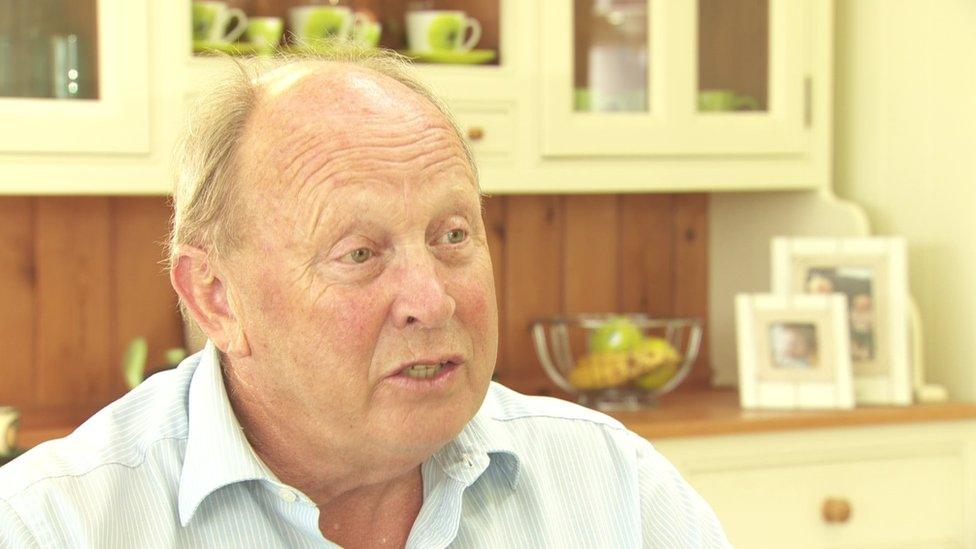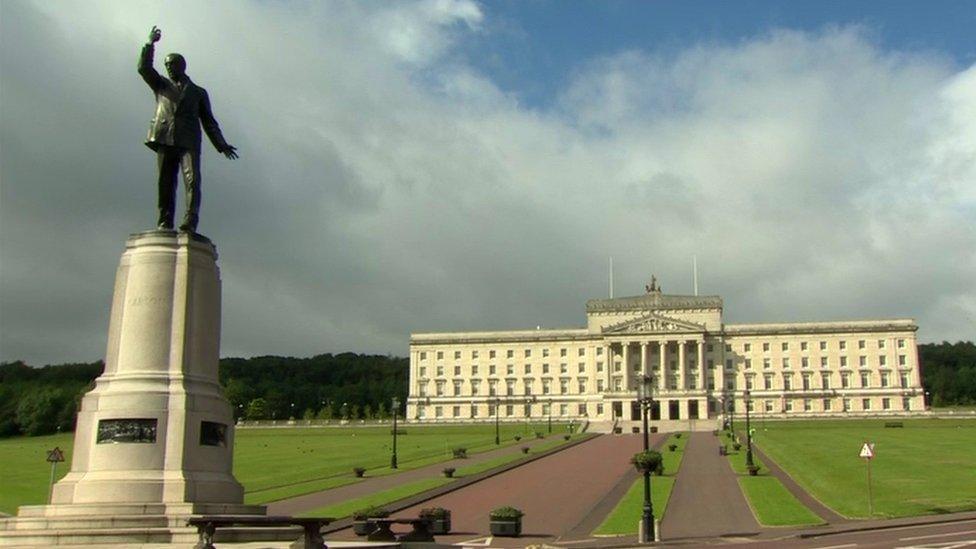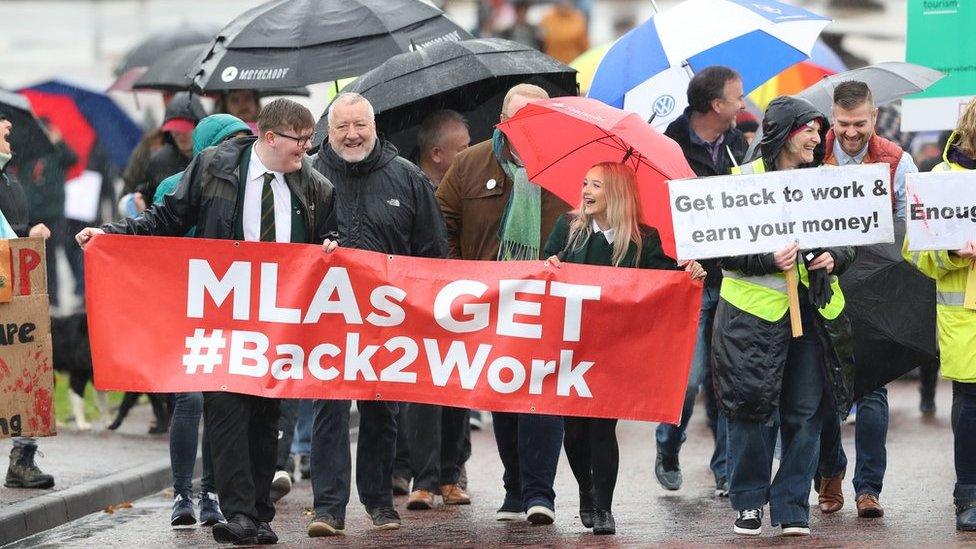MLAs' expenses: Will the fox get the run of the chicken coop?
- Published

Most Stormont parties want the assembly to take over responsibility for setting MLA expenses
As July approaches, it's time to ease, relax, alleviate and loosen the ties that have been binding us for so long.
The public is understandably looking forward to a drink in a pub, a meal in a restaurant, a trip to the cinema or maybe, if you prefer, a bingo hall.
So who would begrudge our politicians a bit of easing of their own, as they seek to shrug off the restrictions which have bound them for so long?
I'm not talking about the Covid-19 regulations but the IFRP ones. If you don't recognise the acronym you are not to blame.
The Stormont Independent Financial Review Panel, external hasn't existed since 2016 when its three members packed up their bags without handing over their office keys to any successors.
The IFRP is the watchdog which used to determine Stormont salaries, pensions and allowances.
This week, we learned our MLAs find the regime bequeathed to them by the IFRP to be onerous and inflexible.
Most Stormont parties want the assembly to take over responsibility for setting MLA expenses and allowances itself, while retaining an independent panel just to look after pay and pensions.
Hands back on the 'honeypot'?
The members of the old IFRP aren't impressed.
Alan McQuillan told BBC News NI many MLAs had proved very diligent with public money, but others were prepared to drive a coach and horses through the old system.
He fears the planned new "twin-track" approach could mean less than scrupulous representatives getting their hands back on what he called the expenses "honeypot".
All the five main parties put their names to a letter explaining the latest plans, but most politicians were reluctant to discuss the matter on our airwaves.
SDLP deputy leader Nichola Mallon - on air to talk about her ministerial responsibilities - told Good Morning Ulster the changes aren't about politicians wanting more generous expenses but are intended to improve the conditions for MLAs' staff.
Alliance opposed the proposals internally but were outvoted by the other four parties.
They signed a motion to be debated next week (this is apparently custom and practice with Assembly Commission decisions) but will continue to argue for an equivalent to Westminster's Independent Parliamentary Standards Authority.
The Traditional Unionist Voice (TUV) leader, Jim Allister, regards the expenses proposal as foolish and wrong.

Jim Allister says MLAs' allowances should be set by an independent body
Like many MLAs he disliked some rules set by the old independent panel (for example, regarding the signs on display outside MLAs' offices).
However, he thinks a new independent body should still set the amount a politician can claim in allowances, even though the assembly should have the power to provide guidance on how some rules are applied.
The letter explaining the proposed changes stressed that MLAs' employees "should have terms and conditions of employment which are in line with wider public sector norms".
Back in 2016, MLA staff salaries were set on three different levels, rising from a minimum of £16,000 to a maximum of £27,500.
Those wage rates have increased since then, but the politicians argue it's not so much the level of wages they regard as inadequate, more the rigid rules on matters like leave and sick pay.
Toilet roll bill
One politician (who I believe does try to provide value for money) told me they had spent £10,000 of their own money on work-related equipment over the last five years.
Their staff had to work from home during the Covid crisis, but the system wasn't flexible enough to provide the extra mobile phones and laptops needed to sustain a constituency service during recent months.
One eye-opening anecdote I heard about the inflexibility of the current system is that an MLA was allowed to charge for toilet rolls for staff and visitors at her constituency office, but not for sanitary products should female employees require them.
But if there is a need for reform, is putting the parties in charge of the entire allowances system the answer?
Isn't that akin to giving the fox the run of the chicken coop?

MLAs' expenses have long been a controversial subject at Stormont
The public still remembers the excesses of the past, such as politicians employing relatives or renting offices from friends.
If the callers to the BBC's Talkback programme on Thursday were anything to go by, Covid crisis or no Covid crisis, this latest relaxation of the rules might be hard to sell.
However, the public won't get their say until the next assembly election - which, as things stand, isn't due to take place until 2022.
On Monday morning, I shall be discussing MLA allowances, easing the coronavirus lockdown and other political developments with a panel of politicians from Fermanagh South Tyrone.
My guests will be Sinn Féin MLA Jemma Dolan, the UUP MLA Rosemary Barton and the DUP Councillor Deborah Erskine.
Please send any questions you have to Inside.Politics@bbc.co.uk or tweet them using our hashtag #bbcip
- Published25 June 2020

- Published23 January 2020

- Published13 October 2019

